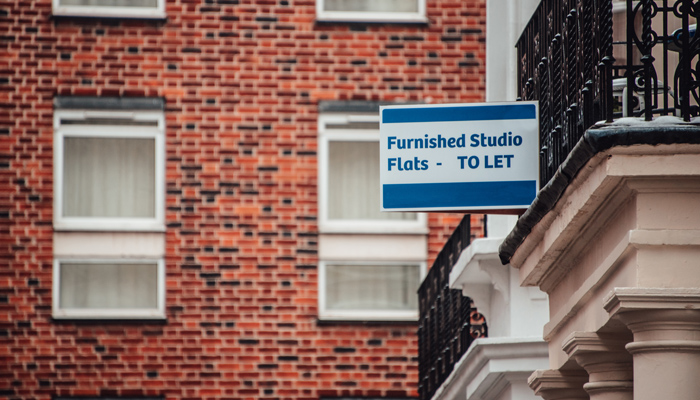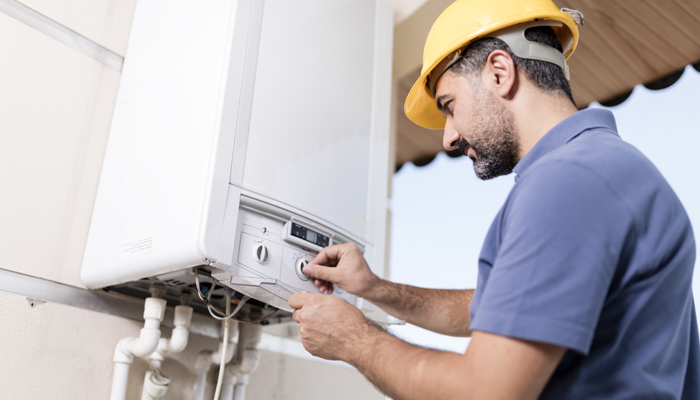How to Claim on Landlord Insurance
Learn how to make a claim on landlord's insurance with our step-by-step guide.
If you have landlord insurance already, then you know it provides invaluable financial protection should any unexpected disasters affect your rental property such as fire or flood.. Of course, the goal is to minimise the risk of such disasters so they happen as infrequently as possible. This, however, means that not many people know how to make an insurance claim until they’re in such a situation.
Understanding what your insurance policy covers and the claims process are both key to leveraging the security that your policy provides. Here, we’ll explain how to set up a landlord insurance claim and maximise your financial coverage.
Understanding your landlord insurance policy
For any landlord, a rental property is both an investment and a responsibility. While collecting rent keeps cash flow going, unexpected events like fire, storms, or tenant mishaps can threaten your investment. This is where landlord insurance emerges as a protective shield, safeguarding your property and finances against unforeseen occurrences. But to get the most out of your policy, it’s important to know what’s covered and how to claim.
Knowing the ins and outs of your landlord insurance policy is more than just a precaution; it's the key to a swift and hassle-free recovery should disaster strike. Here are the crucial details you need to be familiar with:
Coverage details: What events and damages are covered under your policy? This could include fire, theft, vandalism, water damage, and liability for accidental injuries sustained on the property by members of the public.
Claim limits: What's the maximum amount your insurance company will pay for a covered claim? Understanding these limits helps you manage expectations and budget for any potential out-of-pocket expenses.
Excess fee: This is the first amount of any claim you'll have to pay out of your own pocket before the insurance company starts covering the claim. Knowing your excess fee prepares you financially for the initial cost
By thoroughly understanding these specifics, you'll be able to react calmly and effectively in the face of an unexpected event, knowing exactly what your policy covers and how to proceed with making a claim.
Immediate steps after an incident
Unexpected events can disrupt even the most diligent landlord's plans. Whether it's a storm-damaged roof, a sudden plumbing issue, or an unexpected vandalism incident, understanding how to act immediately is crucial. Here’s what to do before contacting your insurer.
Prioritise safety and prevent further damage
- Ensure the safety of yourself, tenants, and anyone in the vicinity.
- If immediate danger exists due to fire, electrical problems, or structural damage, evacuate the property and contact emergency services straight away.
- Once the immediate threat is addressed, take steps to prevent further damage, such as turning off utilities, securing broken windows, and covering leaks.
Document the damage thoroughly
- Take detailed photos and videos of the affected areas from various angles, capturing the extent and nature of the damage.
- Give written descriptions to accompany your photo evidence, recording the date, time, and potential cause (if known).
- Maintain a clear and objective tone, avoiding speculation or assigning blame.
Notify authorities as required
- File a police report immediately for theft, vandalism, or any other criminal activity. A crime number helps build a successful claim
- Inform fire inspectors or health departments if there is significant water damage or any other potential health hazard as a result of the incident.
- Follow any specific notification protocols in your lease agreement or local regulations.
Finally, remember
- Act promptly but prioritise safety. Don't enter unsafe areas or attempt repairs beyond your expertise.
- Maintain calmness and communicate clearly with tenants, authorities, and your insurance provider.
- Stick to the facts and avoid discussing liability or speculating on the cause of the incident.
Contacting your landlord insurance provider
Once you've secured the property, documented the damage, and notified the necessary authorities, contacting your insurance provider should be your next priority. Prompt communication is crucial as it sets the wheels of your claim in motion and allows your insurer to begin working on your behalf.
Before calling, gather some key information to speed up the process. Have your policy number, contact details, and the date and time of the incident readily available. Briefly outline the type of damage that occurred, any immediate steps you took to prevent further harm, and whether you filed any official reports (e.g., police, fire brigade). Be factual and concise,
Remember, your insurance provider is on your side. They want to help you through this situation as quickly and efficiently as possible. Open communication and clear documentation will help them to help you.
Filling out the claim form
Now comes the official paperwork: filling out the claim form. While it might seem daunting, remember, this is your roadmap to recovery. Take your time, read carefully, and provide thorough and accurate information.
Here's how to navigate the form like a pro:
- Describe the incident clearly and concisely: Retell the events leading up to the damage, focusing on facts and avoiding speculation. Stick to objective details like the date, time, and type of incident.
- Paint a vivid picture of the damage: Use descriptive language to illustrate the extent and nature of the damage. Mention affected areas, specific repairs needed, and potential value losses if applicable. Photographs and videos can be invaluable here.
- Don't forget the supporting documents: Attach your detailed photos, videos, and any official reports (police, fire service) to strengthen your claim. Receipts for temporary repairs or mitigation efforts can also be helpful.
- Review and double-check: Before submitting, carefully review the completed form for any errors or omissions. Ensure all required information is included and presented clearly.
Honesty and accuracy when filling out the claim are key. Providing false or misleading information can jeopardise your claim. If you're unsure about anything, don't hesitate to get in touch with Towergate for clarification. We’re here to guide you through the process and answer any questions you might have.
Working with the loss adjuster
While their visit might raise some nerves, remember, they're there to gather facts and work with you towards a mutual agreement. Here's how to navigate this crucial step:
Preparation is key: Have your claim form, photos, videos, repair estimates, and any official reports at hand. Dust off your policy and familiarise yourself with its specifics, including the excess fee and limitations.
The day of the visit: Welcome the adjuster and provide a brief overview of the incident and affected areas. Answer their questions honestly and thoroughly, detailing the damage, any mitigation efforts, and potential causes (if known). Don't shy away from asking questions yourself – clarify any uncertainties about the process or your coverage. Show them your documentation, letting the photos and videos paint a vivid picture of the situation.
The adjuster isn't there to catch you out, but to find a fair solution that works. Cooperation and clear communication are your golden tools. Don't feel pressured to accept an offer you're unsure about – you have the right to negotiate based on your understanding of your policy and the damage sustained. If something feels off, reach out to your insurance provider directly for support.
By approaching the adjuster's visit with preparation, honesty, and openness, you'll set the stage for a smooth and satisfactory claim resolution. Remember, you're working together towards a fair outcome that gets your property back on track.
Receiving the claim decision
The waiting begins after the adjuster leaves. Depending on the damage, it could take a few days or a few weeks for the insurer to reach a decision. The verdict arrives via email or phone, in which you’ll find out whether your claim has been approved or rejected.
If approved, breathe easy! The insurer will lay out the settlement amount, the excess fee, and payment method. Expect funds soon, but allow a few days for processing.
Denial doesn't mean game over. Review the explanation letter and your policy carefully. If you disagree, appeal by calmly and professionally explaining your reasoning and providing any new information. Remember, open communication and clear documentation are key throughout. While it's disheartening, understand the specific reasons for the denial outlined in the explanation letter.
If you’re insured with Towergate, contact us directly to express your concerns and request a review. Explain your reasoning and provide any new information that might support your claim. Remember, a calm and professional approach is key throughout the appeal process
Take precautions for the future
With repairs complete and your property restored, the temptation to relax is understandable. But wise landlords know the true victory lies in preventing future issues. Proactive measures can significantly reduce claims and ensure investment stability.
Consider your property. Regular maintenance, like scheduled plumbing, electrical, and roof check-ups, nips problems in the bud before they escalate. Upgrading security with smart locks, motion detectors, and leak sensors adds another layer of protection.
Tenant selection is crucial. Scrutinise credit reports, verify references, and prioritise responsible pet ownership. Choosing reliable tenants minimises unintentional damage and claim risks.
Finally, review your insurance policy annually. Discuss property updates, changing tenant demographics, and emerging risks with your provider. Adapting your coverage ensures protection against evolving threats.
These measures transform your property from a passive target to a resilient fortress. Vigilance, proactive maintenance, and responsible tenant selection are all essential in minimising future claims.
Weathering storms, both literal and financial, is part of any landlord's journey. But with the right protection, unexpected downpours don't have to turn into life-altering floods. Towergate landlord insurance stands beside you, a sturdy umbrella against the unforeseen.
Our comprehensive coverage safeguards your investment from property damage due to fires, floods, storms, vandalism, and more. Our policies offer instant protection and an online dashboard for seamless management. Whether you manage a cosy studio or a grand estate, we adapt to your unique needs, ensuring affordable coverage that fits your budget.
Don't let high costs dampen your peace of mind. With Towergate by your side, you can breathe easy knowing your property and your finances are protected. Get a quote online or call 0330 822 1313. And let Towergate be your trusted partner, sheltering your investments and giving you the freedom to relax, knowing your property is always covered.
The information contained in this article is based on sources that we believe are reliable and should be understood as general information only. It is not intended to be taken as advice with respect to any specific or individual situation and cannot be relied upon as such.
Landlord insurance from Towergate
We provide landlord insurance for a wide range of properties and tenants including multi occupancy, students, local authority placements, unoccupied and much more. See our landlord webpage or call 0330 828 1709 for more.
About the author
 Alison Wild BCom (Hons), FMAAT, MATT, Taxation Technician is a highly respected industry professional who has been working with and advising SMEs in areas including tax, pensions, insurance and marketing for over 25 years. She is a fellow member of the Association of Accounting Technicians (AAT) and Association of Tax Technicians (ATT) and also has 20 years' experience as a residential landlord.
Alison Wild BCom (Hons), FMAAT, MATT, Taxation Technician is a highly respected industry professional who has been working with and advising SMEs in areas including tax, pensions, insurance and marketing for over 25 years. She is a fellow member of the Association of Accounting Technicians (AAT) and Association of Tax Technicians (ATT) and also has 20 years' experience as a residential landlord.
This is a marketing article by Towergate Insurance. Consistent with our policy when giving comment and advice on a non-specific basis, we cannot assume legal responsibility for the accuracy of any particular statement. In the case of specific problems we recommend that professional advice be sought.
Date: August 05, 2024
Category: Landlords












